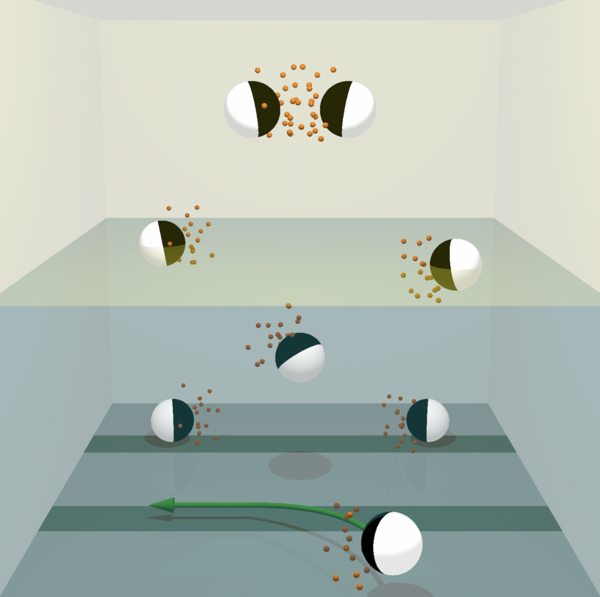Mykola Tasinkevych
(Nottingham Trent University, UK)
Margarida Telo da Gama
(University of Lisbon, Portugal)
William Uspal
(University of Hawai'i at Manoa, USA)

Active matter represents a new class of non-equilibrium soft condensed matter where energy harvesting, and conversion take place at the level of individual constituents. Examples include, but are not limited to, unicellular microorganisms or active colloidal particles. Ensembles of such active particles reveal novel types of self-assembly not accessible in traditional condensed matter systems, such as “living crystals”. The intrinsic non-equilibrium character of these systems provides a fascinating example of how different aspects of Physics and Chemistry may be inter-related, and thus require a thorough investigation to fully understand and discriminate between the subtle mechanisms through which motion actually occurs. Consequently, the development of practical applications of such microscopic self-propellers is still at the concept stage.
Over the past two decades, significant effort has been invested in the development of synthetic nano- and microparticles that can propel themselves through an aqueous environment. These synthetic swimmers have myriad potential applications in, e.g., cell sorting and manipulation, micro-manufacturing, and assembly of dynamic and programmable materials. For these and other applications, a longstanding challenge is to endow the synthetic swimmers with a semblance of “intelligence”: the ability to autonomously sense the local environment, e.g., ambient flow fields, or their position with respect to confining surfaces, and respond according to their design. On the other hand, behaviour of fluids under micro-confinement is, due to the large surface to volume ratio, primarily controlled by interfacial forces. Therefore, by tailoring surface forces through a variety of surface treatments, one can efficiently control both static and dynamic properties of adsorbed active fluids.
Building on recent studies of soft active matter, this workshop will cover the emerging field of active matter in complex environments. Here the notion of “complex” applies to either the geometric confinement, the fluid host medium, or the combination of both. Understanding the individual and collective behaviours of active matter in realistic inhomogeneous environments may lead to the development of new artificial machines operating on microscopic scales. Such machines could, for example, clean polluted water and soils, repair broken tissues, or target and deliver nanoscopic cargo.
We plan an on-site workshop. Talks and posters will only be presented on-site.
Anna Balazs (US)
Larysa Baraban (DE)
Clemens Bechinger (DE)
John F. Brady (US)
Frank Cichos (DE)
Eric Clement (FR)
Cécile Cottin-Bizonne (FR)
Marjolein Dijkstra (NL)
Roberto Di Leonardo (IT)
Alvaro Dominguez (ES)
Jörn Dunkel (US)
Ramin Golestanian (DE)
Gerhard Gompper (DE)
Christian Holm (DE)
Frank Jülicher (DE)
Oleg Lavrentovich (US)
Tanniemola B. Liverpool (UK)
Jacques Prost (FR)
Francesc Sagués (ES)
Samuel Sánchez (ES)
Ulrich Schwarz (DE)
Christine Selhuber-Unkel (DE)
Anupam Sengupta (LU)
Ivan I. Smalyukh (US)
Holger Stark (DE)
Giovanni Volpe (SE)
